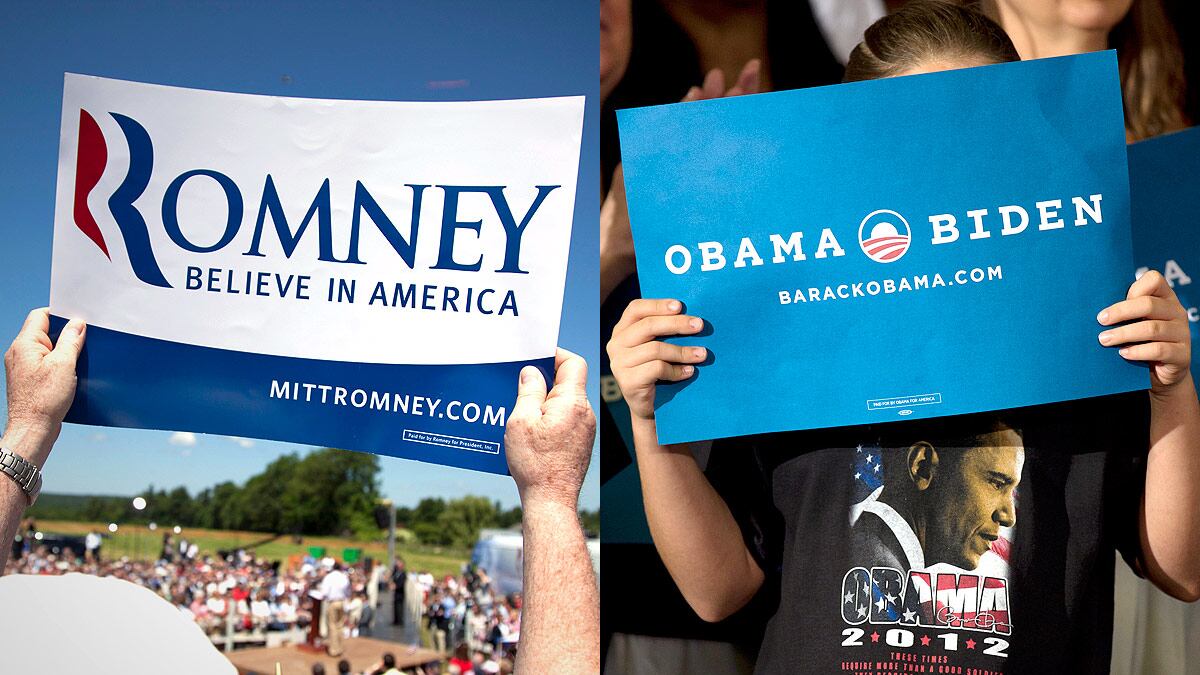Let us, for the moment, pause in our hyperventilation over the “47 percent” about whom Mitt Romney recently got caught talking smack. Yes, branding roughly half the nation as lazy, entitled parasites is impolitic. Getting caught on video doing it in a roomful of rich donors is downright sloppy. But, honestly, what politician doesn’t harbor at least some bitterness toward what he regards as the opposition forces?

The bit of Romney’s lecture that I found still more depressing? His acknowledgement that his true mission is to reach that wafer-thin sliver of voters still sitting on the political fence. As he told the assembled diners: “What I have to do is convince the 5 to 10 percent in the center that are independent, that are thoughtful, that look at voting one way or the other depending on in some cases emotion—whether they like the guy or not, what he looks like.”
With this internally contradictory statement (thoughtful people vote on emotion?) Romney touched upon a grim electoral truth: at this stage of the race, the vast majority of people still waffling aren’t so much “independent” or “thoughtful” or centrist so much as they are utterly clueless.
Ask the political scientists, pollsters, and other professional analyzers of the electorate who parse these sorts of things. They will tell you—as they have told me repeatedly over the years—that undecideds or swing voters or whatever you want to call them tend to be low-information folks who cast their ballots based on whichever candidate gives them the last-minute warm-and-fuzzies. (Did you see that guy’s smile in the last debate? Sign me up!) Way back during the 2000 Bush-Gore smackdown, I dug around in the data, interviewed undecideds, and called up a passel of experts. My findings were perhaps best (and certainly most entertainingly) summed up by Michael Haselswerdt, then the head of Canisius College’s political science department, who told me: “When it comes to politics, undecided voters don’t know anything. And they’re not going to pay attention long enough to learn anything.”
Twelve years on, the situation has not changed much. As The New York Times noted recently, “Swing voters often form their opinions about candidates based on emotional intangibles and a few events, like the debates.”
As for these oh-so-thoughtful folks’ carefully weighing their options, the Times observed, “Of likely swing voters, white non-college voters are ‘particularly low-information voters who don’t pay attention to the daily political back-and-forth, so their opinions are driven by their economic situation,’” said Jefrey Pollock, the president of Global Strategy Group, a polling firm for Priorities USA Action, a pro-Obama super PAC.
Or as NBC’s First Read put it last week after postconvention analyses of undecideds in the battleground states of Florida, Ohio, and Virginia: “These are voters who simply aren’t paying attention.”
Ya think?
Another enduring and annoying characteristic of undecideds: many of them aren’t really undecided at all. (The Times put the number of self-styled independents who reliably vote for one party or the other at around half.) Why would people pretend to be something they’re not? Oh, I don’t know, maybe because political types blather on and on about how “thoughtful” it makes them.
You see this phenomenon a lot even in (or maybe especially in) a highly partisan state like Texas, where right up until Election Day, scads of voters will claim to be undecided about, say, who to support for governor. But as Texas political watchers note, in the end, those so-called undecideds break disproportionately Republican. (This phenomenon helps explain why Gov. Rick Perry has a history of looking like he’s struggling right up until crunch time.) To be a self-avowed Democrat in a state as conservative as Texas, after all, requires a certain degree of conviction.
Yet these are the sages to whom the political world caters, and on whom presidential campaigns spend literally billions of dollars. The media interview them until we’re blue in the face. We put them on the television. We stick them in focus groups. Pollsters track their every cough and yawn. Never has such demonstrable ignorance been in such great demand. (Well, unless you count the cast of Jersey Shore.)
It almost makes you feel sorry for Romney and Obama, having to spend so much of their time chasing after people who don’t really give a damn one way or the other. If ever there was a slice of the electorate that didn’t deserve such pandering, it is these “thoughtful” few.





